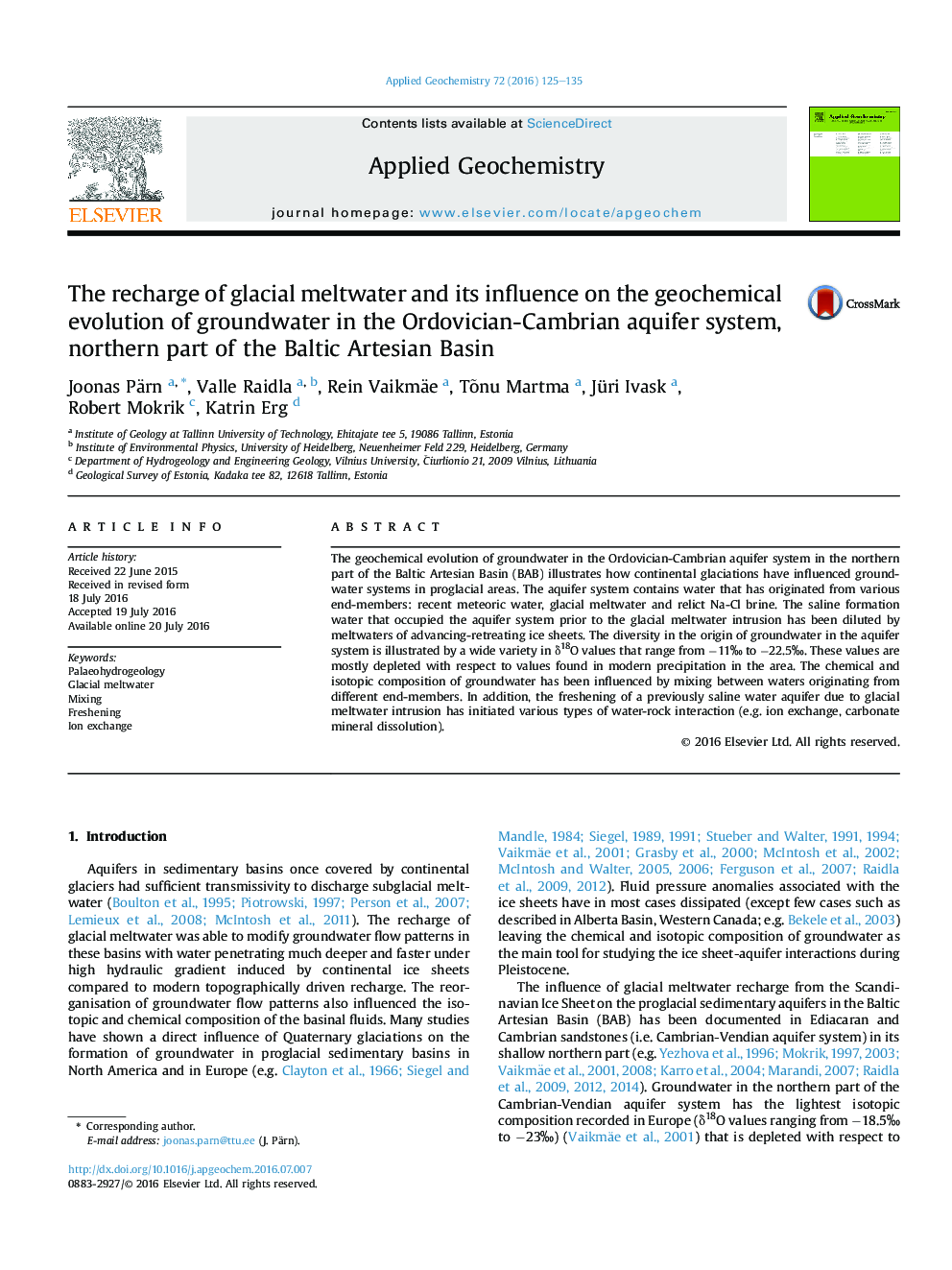| Article ID | Journal | Published Year | Pages | File Type |
|---|---|---|---|---|
| 6334810 | Applied Geochemistry | 2016 | 11 Pages |
Abstract
The geochemical evolution of groundwater in the Ordovician-Cambrian aquifer system in the northern part of the Baltic Artesian Basin (BAB) illustrates how continental glaciations have influenced groundwater systems in proglacial areas. The aquifer system contains water that has originated from various end-members: recent meteoric water, glacial meltwater and relict Na-Cl brine. The saline formation water that occupied the aquifer system prior to the glacial meltwater intrusion has been diluted by meltwaters of advancing-retreating ice sheets. The diversity in the origin of groundwater in the aquifer system is illustrated by a wide variety in δ18O values that range from â11â° to â22.5â°. These values are mostly depleted with respect to values found in modern precipitation in the area. The chemical and isotopic composition of groundwater has been influenced by mixing between waters originating from different end-members. In addition, the freshening of a previously saline water aquifer due to glacial meltwater intrusion has initiated various types of water-rock interaction (e.g. ion exchange, carbonate mineral dissolution).
Related Topics
Physical Sciences and Engineering
Earth and Planetary Sciences
Geochemistry and Petrology
Authors
Joonas Pärn, Valle Raidla, Rein Vaikmäe, Tõnu Martma, Jüri Ivask, Robert Mokrik, Katrin Erg,
